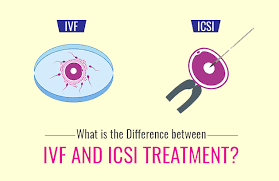Intracytoplasmic sperm injection (ICSI), also known as intracystic sperm aspiration, is one of the most frequent infertility treatments for men. ICSI is a lab-based treatment that involves a guy’s sperm is injected directly into an egg to help fertilization occur.
Find out everything there is to know about ICSI fertility treatment with this article.
What is ICSI?
If a guy is having trouble with his fertility and requires laboratory therapy in addition to In vitro fertilisation (IVF), ICSI may be an option.
Because of this, the sperm is taken from the male and evaluated in a laboratory so that the healthiest sperm can be chosen and collected, ready to be injected directly into an egg. The externally fertilized egg is then introduced into the uterus as part of the usual IVF treatment procedure.
Who is it for?
If you or your partner have failed with IVF treatment in the past, ICSI treatment may be advised by your physician or clinic like Fertility Plus if your sperm quality is bad, such as:
- Low sperm count, it’s called oligospermia. or no sperm at all it’s called azoospermia.
- Poor mobility in sperm.
- A high percentage of abnormal sperm.
- A vasectomy, blockages, injury, or a genetic problem might require the surgical collection of sperm.
- Semen levels of antibodies are high.
If the man has issues with ejaculation, or if the patients are using frozen sperm that isn’t of ideal quality, ICSI can also be utilized. However, if the poor quality or immature eggs were discovered during prior IVF treatment, it is doubtful that ICSI will be effective.
How does it work?
An embryologist will evaluate the sperm in ICSI to determine which ones have the greatest amount of motility and quality. In contrast to conventional IVF, in which semen is combined with an egg and then left to fertilize, ICSI involves a single sperm being injected straight into an egg to help reproduction succeed.
Then, after a week or so of in vitro fertilization, the process resumes and embryos are left to grow in the lab for around five days before being implanted.
Is it safe?
There are several dangers associated with ICSI, although it is usually regarded as a safe and appropriate treatment. A person should be aware of these hazards before agreeing to treatment:
- During the laboratory procedure of injecting the sperm, eggs may be harmed.
- A child’s risk of inheriting particular genetic and developmental anomalies. It is also possible that these difficulties are caused by the underlying fertility, rather than the ICSI procedure itself.
How effective is ICSI?
ICSI is a relatively successful form of assisted reproductive technology in that it should be able to fertilize between 50 and 80% of eggs. However, because it is a component of a larger process – in which the eggs must successfully implant in the uterus to become pregnant – ICSI success rates are also linked to IVF, where around 31% of persons under 35 have a chance of conceiving.
Before you make the decision whether ICSI treatment is right for you, your fertility clinic should discuss it in detail with you.





Be First to Comment